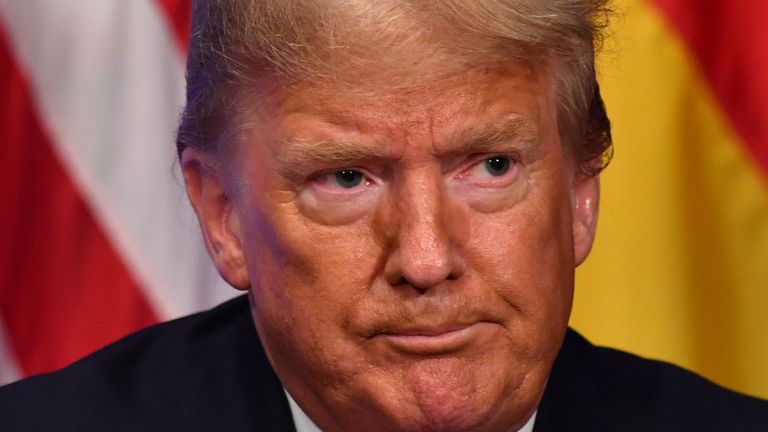The recent declaration by Donald Trump urging NATO partners to allocate 5% of their national GDP towards defense will undoubtedly push governments throughout Europe into a state of urgency—most notably in the UK.
Britain positions itself as the largest defense spender in Europe, particularly in the eyes of the United States, and is recognized as NATO’s most formidable European military.
Yet, Sir Keir Starmer has struggled to even provide a timeframe for what he terms a “path to 2.5%” of GDP to be allocated for the military, an increase from the current just above 2%.
If the prime minister merely adheres to this commitment, he risks being perceived by the incoming administration as alarmingly unambitious and lacking credibility in matters of defense.
Moreover, there is the astonishing threat made by Mr. Trump to potentially annex Greenland through force, despite this valuable territory belonging to Denmark, a NATO ally.
This potential action—should it actually occur—would highlight the constraints of the alliance’s Article 5, which is intended to ensure that all allies will defend any member state facing an armed attack.
However, what happens if the aggressor is also considered an ally?
The president-elect also seemed to extinguish any possibility of Ukraine receiving membership in the alliance in the near future—a key demand from President Volodymyr Zelenskyy.
Instead, Mr. Trump expressed agreement with Vladimir Putin’s staunch opposition to such an initiative.
He conveyed intentions to meet with the Russian president post-inauguration—reiterating his commitment to concluding the conflict in Ukraine, although once again without clarifying the methodology.
These statements arose during a lengthy press conference on Tuesday, heralding what might become a pivotal moment for NATO—an alliance formed from the remnants of the Second World War.
Read more:
Trump comments on Canada, Gaza, and Biden’s ban reversal
A comprehensive guide to Trump’s inauguration
NATO’s European members, alongside Canada, were already subjected to considerable pressure during Mr. Trump’s previous term in office—and justifiably so.
The US had for far too long primarily funded Europe’s security apparatus, while most of its allies—including the UK—capitalized on the so-called “peace dividend” that emerged following the collapse of the Soviet Union and the end of the Cold War, shifting financial resources from defense towards peacetime objectives such as economic development, healthcare, and education.
Mr. Trump expressed his dissatisfaction during his first term regarding what he perceived as the exploitation of Washington and pledged to compel Europe to share its fair share of responsibilities.
He cautioned member nations that the US would refrain from assisting any ally that failed to meet at least the minimum NATO spending benchmark of 2% of GDP—something they had earlier committed to achieving by 2024 but were sluggish in fulfilling.
This rhetoric electrified allies more profoundly than even Putin’s initial 2014 aggression in Ukraine, which involved the annexation of Crimea and assaults in the eastern regions of Ukraine.
However, with the escalating threat posed by Russia following its full-scale invasion of Ukraine in 2022, combined with turmoil in the Middle East and the challenges presented by China, it has become evident that the current level of military expenditure by allies falls significantly short of what is necessary to reinforce defenses across Europe.
Europe that have been drained over the years.
Discover more from Sky News:
Trump’s Gaza warning risks losing its impact
Trump requests court to overturn hush money conviction
Mark Rutte, the recently appointed secretary general of NATO, prepared the ground for what is anticipated to be yet another initiative aimed at increasing investment during a significant address he made last month in which he urged allies to adopt a “war mentality” and “accelerate” defense spending.
He indicated that this was in response to emerging threats, but analysts noted that it also served as a proactive measure to meet the expected demands of the impending Trump administration.
Regardless of the outcome, this presents a substantial challenge for all allies, particularly for Sir Keir Starmer.
He and Rachel Reeves face a crucial decision: to alter their priorities regarding economic growth, hospital wait times, and new housing investments to increase defense spending or resist what will likely be mounting pressure from the United States to invest billions more in the UK military – potentially placing the nation in a scenario where the US may not assist if it is attacked.



